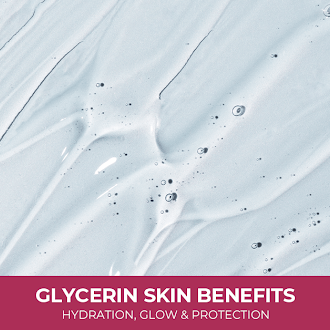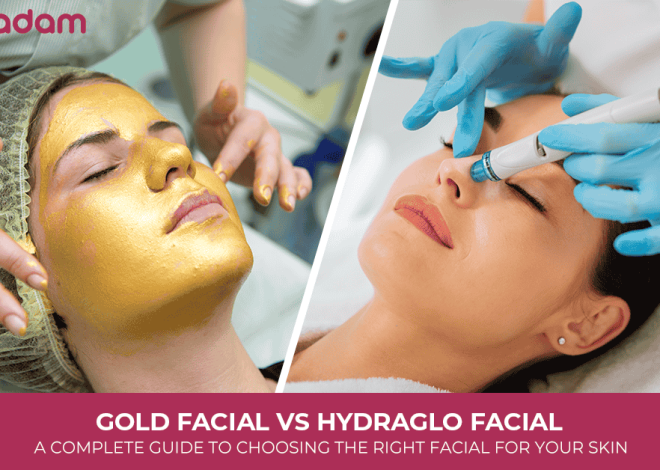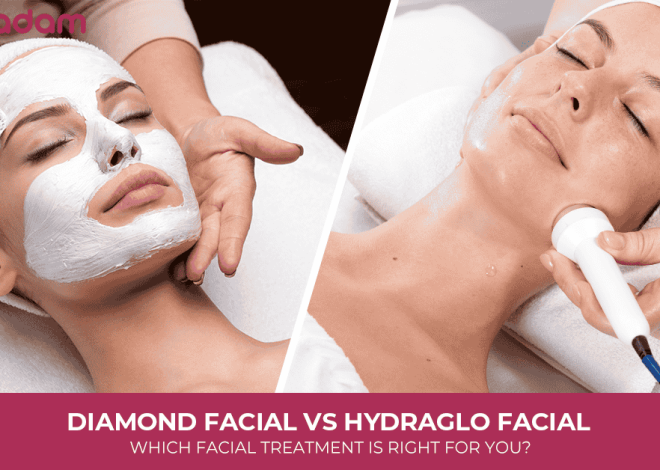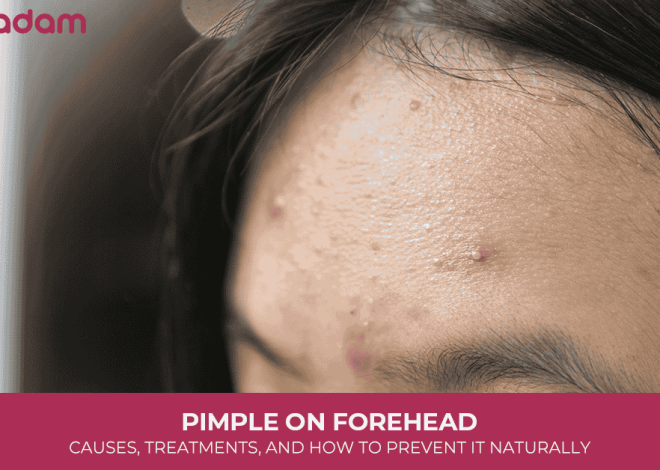
Glycerin Skin Benefits: Hydration, Glow & Protection
When you think of skincare essentials, luxurious serums and expensive creams might come to mind. But sometimes, the simplest ingredients work wonders — and glycerine is one of them. This transparent, odorless liquid has been used in beauty and healthcare for generations. Whether it’s in soaps, lotions, face washes, or DIY remedies, glycerine continues to be a trusted ingredient for healthy, glowing skin.
In this article, we’ll explore everything about glycerin in skin care, what it does, its unique properties, the wide range of glycerin skin benefits, and how you can use it effectively in your skincare routine.
Table of Contents
What is Glycerine?
Glycerine, often called glycerol, is a clear and thick liquid that naturally comes from plant oils or animal fats, though it can also be created in labs. Its standout quality is that it works as a humectant, meaning it pulls moisture from the air and helps retain it within the skin.
So, if you’ve ever wondered, “what glycerin do to skin?” — the answer is straightforward: it hydrates, softens, and shields the skin by locking in essential moisture. Because of these qualities, glycerine is a common ingredient in lotions, face washes, toners, and even medicinal creams.
Top Glycerin Skin Benefits to Consider

Let’s break down the top glycerin skin benefits that make it such a versatile skincare ingredient:
1. Long-Lasting Hydration
Glycerine helps attract moisture from the surrounding air and holds it within the skin’s surface layers, leaving it soft, smooth, and well-hydrated. Unlike many creams that sit only on top of the skin, glycerine works at a deeper level, providing more effective and long-lasting hydration.
2. Relief for Dry & Irritated Skin
People struggling with eczema, psoriasis, or sensitive skin often find relief with glycerine. It helps reduce redness, flakiness, and discomfort by soothing the skin and maintaining its natural moisture balance. This highlights the positive effect of glycerine on skin for those with dryness issues.
3. Anti-Aging Support
Dehydrated skin shows fine lines more quickly. Since glycerine keeps the skin well-hydrated and firm, it helps smooth out wrinkles and gives your skin a youthful look. Simply put, glycerine is good for skin if you want to keep early aging signs at bay.
4. Stronger Skin Barrier
Your skin barrier is essential for defending against pollution, bacteria, and sun exposure. Glycerine strengthens this barrier by locking in moisture, making your skin more resilient to environmental damage.
5. Enhances Natural Radiance
Regular use of glycerine can improve overall texture, leaving skin soft, smooth, and glowing. That’s why many people rely on glycerine for skin benefits when they want a natural, radiant look.
How to Use Glycerine for Skin

Knowing its benefits is one thing but using it correctly is even more important. Here are some effective ways:
1. Daily Moisturizer
Blend a few drops of glycerine with your regular moisturizer or face cream. For best results, apply it immediately after cleansing to lock in moisture and maintain smooth, nourished skin.
2. DIY Face Mist
Combine ½ cup rose water + 1 tbsp glycerine + 2-3 drops lavender oil in a spray bottle. Use this refreshing mist whenever your skin feels dry.
3. Aloe Vera & Glycerine Gel
Blend equal amounts of aloe vera gel and glycerine. Use as a soothing night mask for dry or sun-exposed skin.
4. Lip Softener
Combine a little glycerine with honey and apply it to your lips at night. By morning, your lips will feel soft, nourished, and well-moisturized.
5. For Oily Skin
Instead of heavy creams, dilute glycerine with rosewater to keep skin moisturized without making it greasy.
Important tip: Always dilute glycerine before applying. Pure glycerine can feel sticky and may attract too much moisture, causing slight irritation.
DIY Glycerine Recipes and Their Benefits for Skin
Glycerine (also called glycerol) is a natural humectant that draws moisture into the skin. The glycerine benefits for skin are numerous—it keeps your skin hydrated, soft, and youthful-looking. It also helps repair dryness, protects against environmental damage, and is gentle enough for sensitive skin.
DIY Glycerine Recipes for Skin Care
1. Moisturizing Face Mist
- Ingredients: 2 tbsp glycerine + 1 cup rose water
- Use: Spray on face anytime for hydration.
- Benefit: Refreshes and tones while locking in moisture.
2. Brightening Solution (Glycerine + Lemon)
- Ingredients: 1 tbsp glycerine + 1 tbsp lemon juice
- Use: Apply for 10–15 minutes, rinse off.
- Benefit: Improves skin tone and fades dark spots.
3. Hand & Foot Cream for Dryness
- Ingredients: 2 tbsp glycerine + 1 tbsp coconut oil + 1 tbsp aloe vera gel
- Use: Massage before bedtime.
- Benefit: Repairs cracks, deeply moisturizes, and softens skin.
4. Acne-Soothing Pack
- Ingredients: 1 tbsp glycerine + 1 tbsp honey + a pinch of turmeric
- Use: Apply on acne-prone areas, rinse after 15 minutes.
- Benefit: Calms inflammation and fights bacteria.
5. DIY Lip Balm
- Ingredients: 1 tsp glycerine + a few drops of almond oil
- Use: Apply before sleeping.
- Benefit: Heals chapped lips and keeps them soft.
Side Effects & Precautions to Take When Using Glycerine Gel in Your Skin Care Routine
Although there are many glycerine benefits for skin, and it’s generally safe for most skin types,
Here are a few things to keep in mind:
- Thick Consistency: Applying pure glycerine directly can leave the skin feeling sticky and heavy.
- Sun sensitivity: Using glycerine outdoors without sunscreen may increase sensitivity.
- Patch test: Always test on a small area first if you have very sensitive skin.
So while the effect of glycerine on skin is generally beneficial, it’s always smart to use it correctly.
Conclusion
From deep hydration to anti-aging benefits, the benefits of glycerine for skin make it one of the most reliable ingredients in skincare. It’s inexpensive, easy to find, and safe for almost every skin type. Whether you want to prevent dryness, reduce wrinkles, or just maintain a healthy glow, glycerine is an excellent choice.
So if you’re still asking yourself, “is glycerine good for skin?” the answer is absolutely yes! Add it to your skincare routine and experience the transformation for yourself.
FAQs About Glycerine for Skin
Q1. Is glycerine good for skin?
Yes, glycerine is good for skin because it hydrates, softens, and improves overall texture.
Q2. Can I use glycerine on my face every day?
Yes, but always dilute it with rosewater, aloe vera, or a moisturizer for best results.
Q3. What glycerin do to skin?
It attracts water and locks it into your skin, keeping it moisturized and plump.
Q4. Are there side effects of glycerine on skin?
Rarely. Direct use without dilution may feel sticky or cause mild irritation.
Q5. How does glycerine help in winter?
It prevents dryness, flakiness, and chapped skin, keeping it smooth and healthy in cold weather.
Q6. Can glycerine be used on acne-prone skin?
Yes, glycerine is non-comedogenic, meaning it won’t clog pores, making it safe for acne-prone skin.
Q7. Who can use glycerine?
All skin types — oily, dry, sensitive, and combination — can benefit from glycerine when used correctly.



